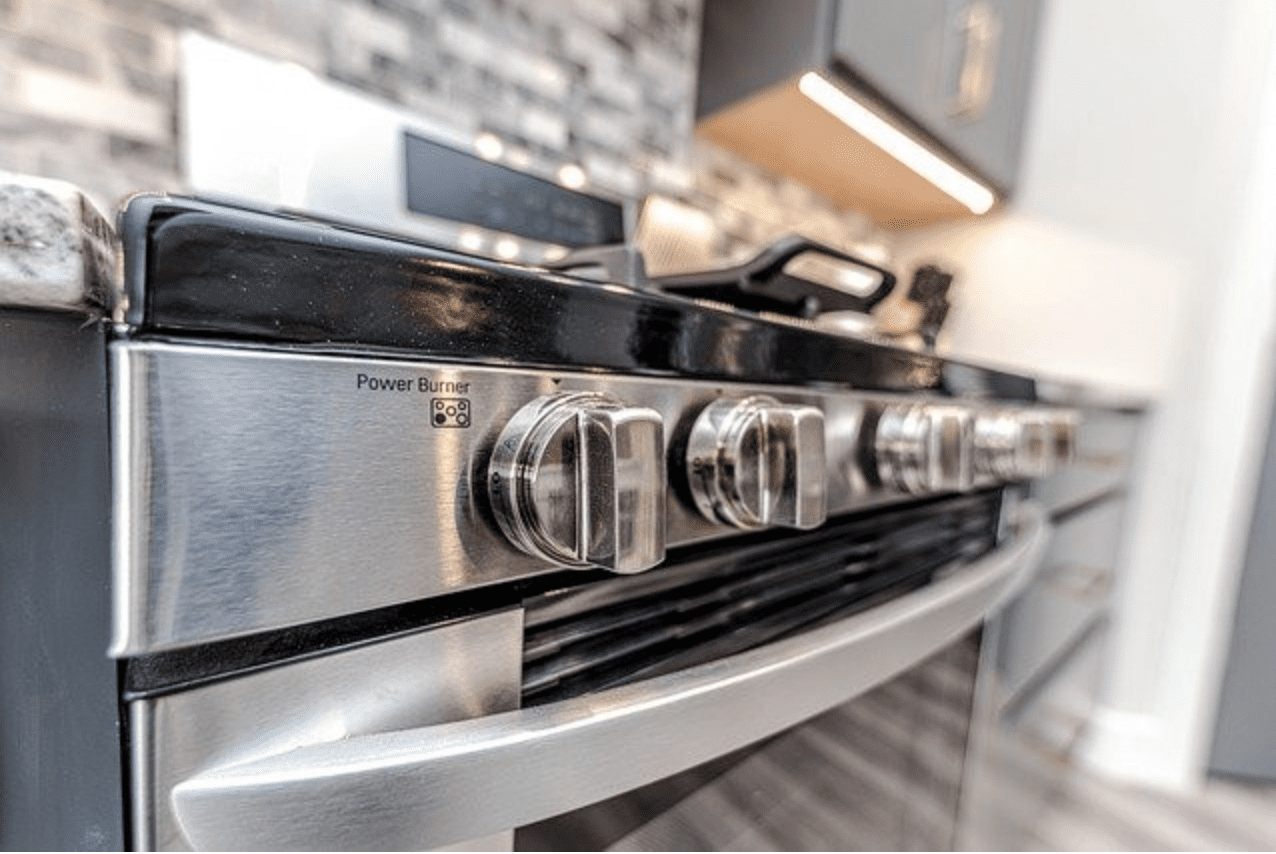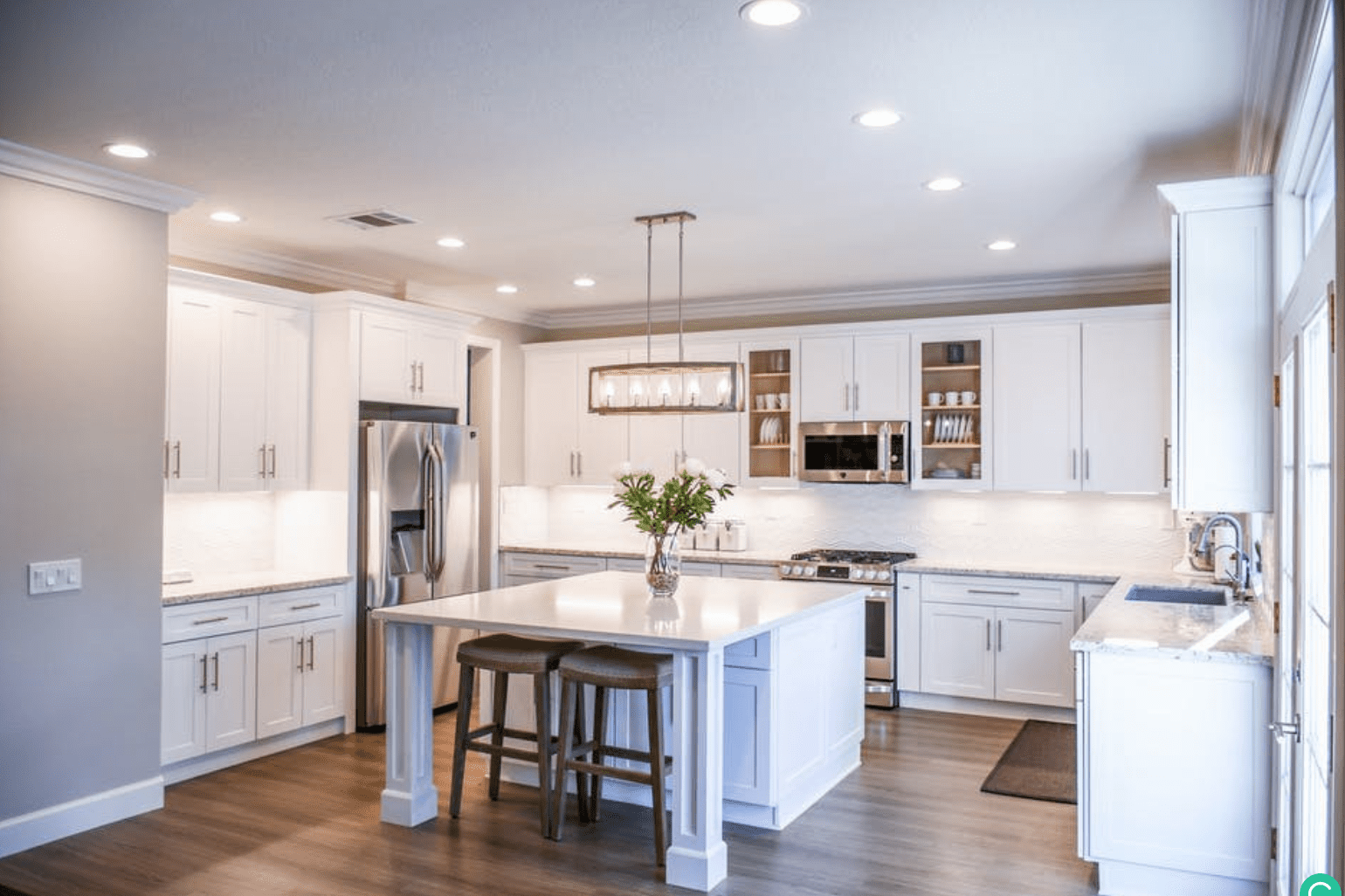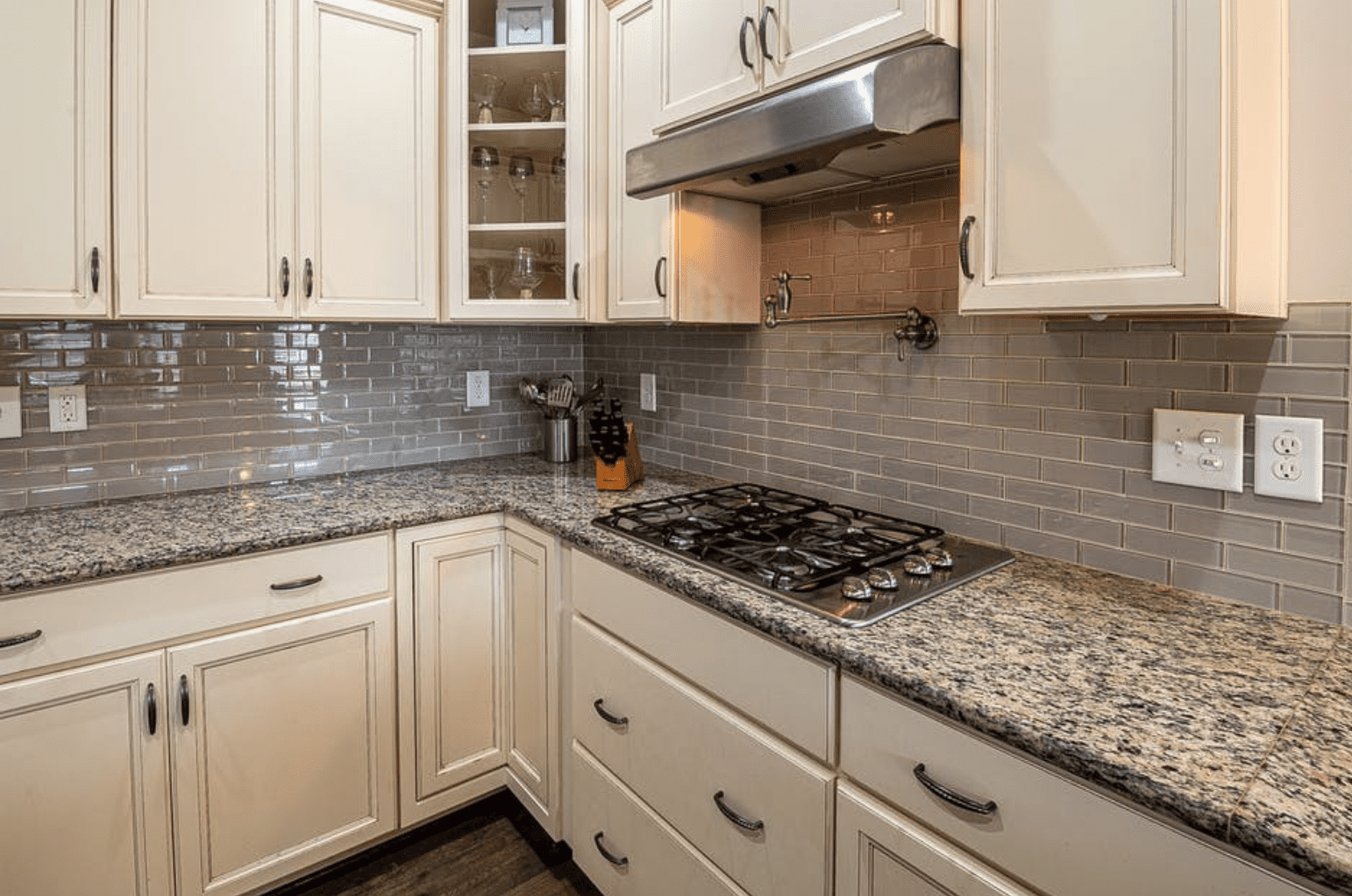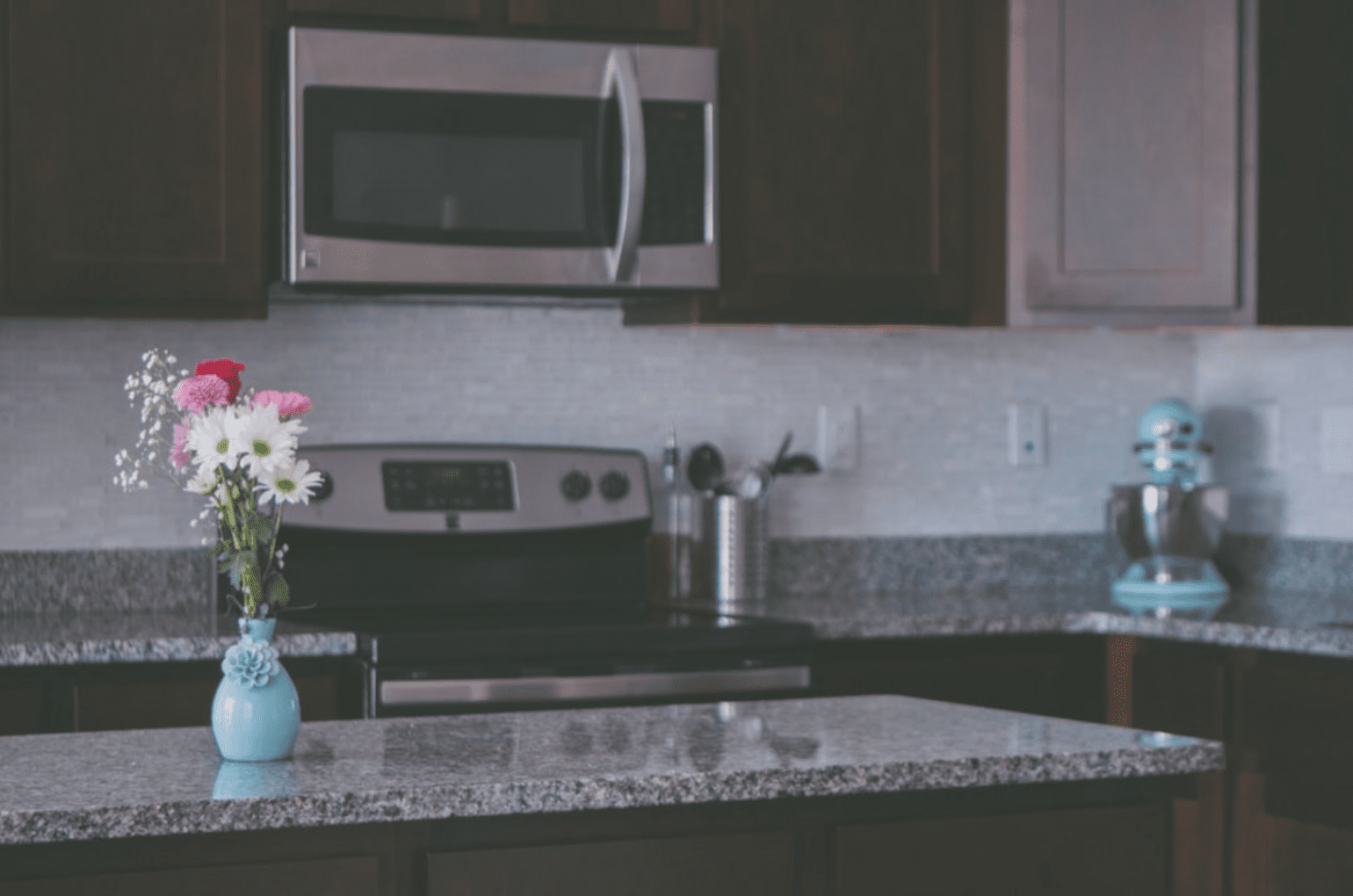Whether you are completely remodeling your kitchen or replacing a few old appliances, you will have to decide what type of range to buy. In this article, we’ll go over the pros and cons of gas vs electric ranges. Choosing such an essential piece of equipment deserves some research.
Gas ranges are cheaper to operate than electric because gas is almost always cheaper than electricity. They also heat the food faster, and you can adjust the heat instantly. However, unlike electric ranges, they are quite expensive to install.
Our builder gave us two options for our range in a new house in Lewes: gas or electric. My wife and I preferred gas, but the electric range came with the house at no additional cost, while the gas option was $400 more plus we had to install a propane tank at the cost of about $3,000. We chose electric, but we will probably consider installing a gas range in the future.
We’ve stuck with an electric range for a while, but I’d like to know the advantages and disadvantages of electric and gas ranges.
Difference Between Gas and Electric Ranges and Why It Matters

As the name suggests, gas ranges are powered by natural gas, while electric ones run on electricity. Both types are widely available, and you can choose among numerous models, sizes, and designs.
Most homeowners spend a lot of time in the kitchen, especially those with large families. Choosing a range that meets the cooking needs of your family is very important.
There are a lot of misconceptions about these two. Some say that electric ones are faster, while others say that professional chefs only use gas.
Generally speaking, some electrical ranges may heat up faster, but that depends on the model. Many decent gas ranges with large burners can compete with electrical ones. Also, professional chefs’ opinion applies to restaurants, but not necessarily to your family kitchen.
Cooking for family and friends is not the same as cooking a meal in a five-star restaurant.
The cons of one of those ranges can be pros for your specific situation. You should go over the following paragraphs as a guideline for your own needs, instead of concentrating what works for someone else, or what is considered better in general.
One more important factor before you consider the pros and cons is time spent cooking. If you cook on Sundays only, the cost of fuel may not be that relevant to you. For those cooking every day, fuel will be more important than other factors. Size also matters, and if you are a new homeowner, plan for the future. What is sufficient now, may not be in a few years.
Here is a list of the pros and cons of both gas and electric ranges.
Gas Ranges Pros
Low Fuel Cost
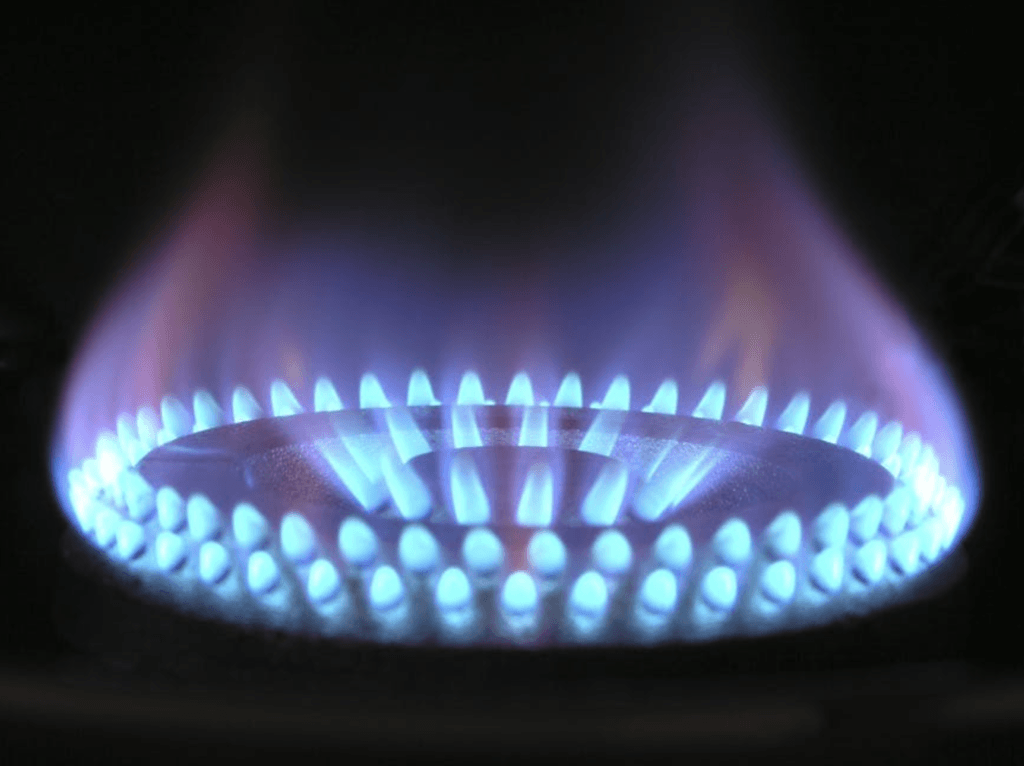
According to Consumer Affairs, natural gas is almost always cheaper than electricity, saving you up to 30 percent on your utility bill.
Fuel cost is especially important if you cook a lot, and like to prepare multiple meals every day. Although the initial installation price of gas ranges can be quite high, burning cheap fuel for years can offset the initial investment. Natural gas is prevalent for a variety of uses, and that makes it mostly available everywhere.
On the other hand, if you cook only occasionally because of your busy schedule or because you don’t care about cooking, fuel cost is a moot point.
Quick Heating
As soon as you turn it on, there is fire. And fire is instantly hot. When using gas ranges, you won’t have to wait for it to heat up. Cooking food, or just boiling a pot of water, will be very fast.
This is also beneficial when you finish cooking. By turning the range off, you remove the heat source instantly, and you can leave the pot on top without overcooking the food.
Instant Adjustment of the Temperature
When cooking on gas ranges, you have almost infinitive possibilities between a minimum and maximum position. And when you want to increase or decrease heat, you can do that instantly.
There is no need to wait for the range to cool down slowly or heat up. If you like to prepare complicated meals that are very sensitive to heat, the gas stove might be the one for you.
This is one of the main reasons why professionals prefer gas over electric.
Gas Ranges Cons
Uneven Heat Distribution
Flames in gas ranges heat both the bottom and the sides of a cooking pot.
It will heat up fast, but when you want your food to be perfectly and evenly cooked from the bottom, gas ranges are harder to manage.
Flames heat the part they touch more, and usually, the middle part of the pot or pan remains a bit colder. This is not a big problem, but once in a while, when you are preparing something special, it can be frustrating.
Hard Cleaning
Unlike electric ranges, gas ones have a burner, and over it, burner grates you put the pots on. As you know, cooking can be quite messy, and when your favorite meal ends up spilled across the gas stove, cleaning can be tedious.
You will have to remove the burner grates and scrub them separately. Cleaning around the burners and their edges can also be a frustrating task.
Unstable Flame
A flame is sensitive to wind. If you have aircon blowing towards the range, or you like to cook near an open window, you may notice the flame “shrinks” every time there is a wind gust.
Many people like to cook near open windows as it lowers the temperature inside the kitchen and removes the strong cooking smells.
High Price
Gas ranges are quite expensive, especially the high-end models. Their price can be a few times higher than the electrical ones. However, if you cook a lot, a gas range may be a good investment because it will pay off in the long run, as the fuel is relatively cheap.
Also, installing a gas range is more complicated, and it will cost you more.
The Safety Concern
Some homeowners are concerned about the danger of gas as fuel. Some fear that it may leak and maybe even explode. Same as with any other appliance, regular service and maintenance is essential.
Fires are possible with electric ranges too. High-temperature generated by electricity may be dangerous if misused. Never leave your ranges unattended while operating. Make sure you switch off the gas after you are done cooking.
Electric Ranges Pros
Low Appliance and Installation Price
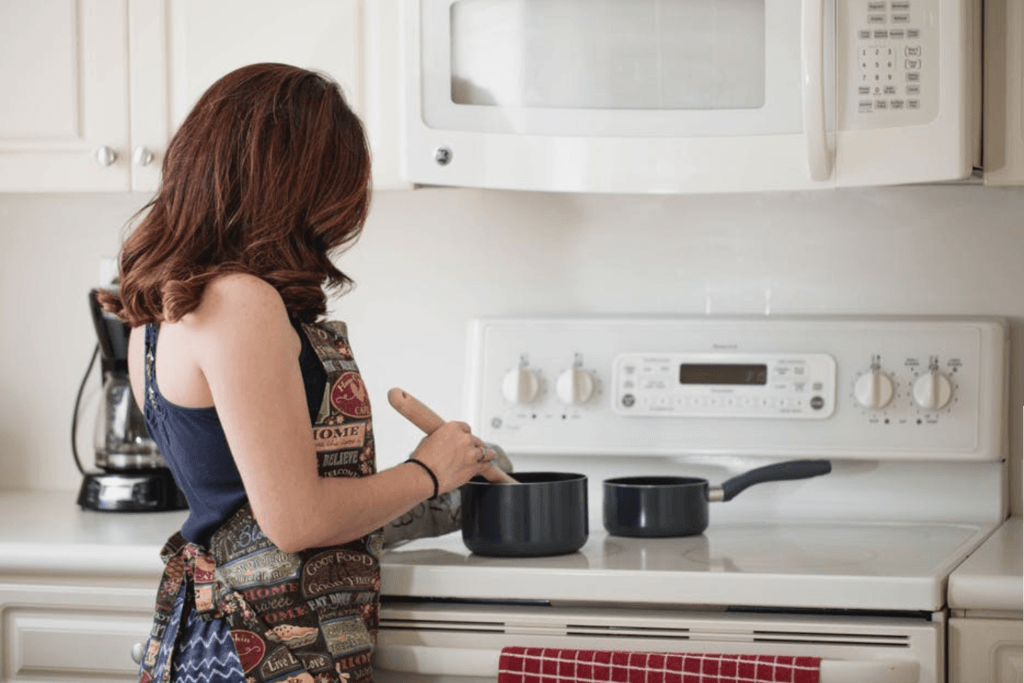
When looking at different types of ranges, you will notice that electric ones are much cheaper than gas, and since the installation process is easier, it is also less expensive.
That initial price is quite important, especially if you have a limited budget. However, be careful because this low investment may end up being more expensive in the long run due to the cost of electricity.
Easy Cleaning
Accidents happened, and when they do, they will be easier to clean on electric ranges. The top is even, and there are no additional parts to clean, so you can just scrub it off. Cleaning the Range Hood Filter is also easy.
The surface is usually durable enough to withstand the usage of strong cleaners. Keep in mind that anything spilled over a hot range will be extremely dry and “baked” when the range cools down enough to be cleaned. Avoid scraping it off with hard objects such as knives.
Even Heat Distribution
Electric range heats up evenly, and the heat distributed on the pot will be the same at every point, from the middle to the edge. That means that anything you cook or fry will be evenly done across the entire diameter.
Additional Features
Modern electric ranges have different features, such as keeping the food warm without overcooking it. Some of them have options for different types of food too. If you are one of those homeowners who like to experiment in the kitchen, this option may work well for you.
Electric Ranges Cons
Energy Cost
Electricity is expensive, and electric ranges use a lot of it. For those who cook every day, electricity bills can be very high. This is where you should thoroughly think about the initial low price and decide if it is worth it in the end.
Energy Dependency
The city provides electricity, and any malfunction that results in cut-off will influence your chances to cook. Power can be down for maintenance, severe storms or floods, or even a problem within your home.
If you live in an area with frequent electricity problems, you may have to consider buying a gas stove.
Reduced Durability
The surface of electric ranges may be hard enough to be scrubbed, but if you drop a heavy pot, cutting board, or similar object on top of it, that surface could brake.
Compared to gas ranges, the surface of the electric ones is much weaker. And once it breaks, it can not be fixed. You will have to replace the whole cooktop assembly or even buy a new appliance.
Slow Temperature Adjustment
Increasing and decreasing temperature during cooking is important. With electrical ranges, that process is slow. That may result in overcooked food, even if you reduced the heat in time.
If you are frequently preparing fancy dinners for numerous guests, an electric stove may not the one for you.
Closing Thoughts
After you consider all the pros and cons, the question you should ask yourself is not, “Which one is better?” because that is impossible to say. But, “Which one is more suitable for me?” and make a decision based on the answer.
Related Posts:

